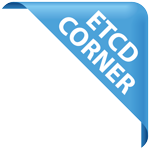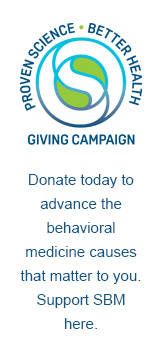
Winter 2017-18
Editor's Note

Some terrifically informative articles this time around, including some very valuable experiences shared by seniors in the field in "Ask the Experts". Take a look!
President's Message

On November 13 this year, millions of Americans instantly developed hypertension. This time, it wasn't because of political news, but because the American Heart Association which changed the diagnostic threshold for hypertension from 140/90 to 130/80. The move was motivated by an increasing amount of empirical evidence demonstrating that we could produce even greater reductions in cardiovascular disease risk by pushing blood pressure below the previous threshold. The new guidelines, Association leaders argued, might help providers more quickly identify and treat those who would benefit from blood pressure lowering therapy. In response to the announcement, pharmaceutical company stock prices jumped almost immediately. For investors, the updated guidelines forecasted a potentially massive increase in prescriptions for antihypertensive medications. While that may happen, medications aren’t the only — or likely even the best — treatment for patients with hypertension, particularly for those with blood pressure levels near the new threshold.
Board Notes - Deeds Not Words: SBM Needs your Active Engagement in Our Elections Process

A few days before I started writing this article, I had the pleasure of watching my oldest daughter perform in her high school’s award-winning, original one-act play, “Deeds Not Words.” The student-written and produced play presents the story of Lady Constance Lytton, an English aristocrat who in the early 1900’s masqueraded as a working class woman in order to participate in the women’s suffrage movement in Britain. In fact, Lady Lytton joined the most militant group of suffragettes at that time, the Women’s Social and Political Union (WSPU). The WSPU, founded by Emmeline Pankhurst (brilliantly portrayed by my daughter), very publically brought attention to the fact that all citizens had a right and obligation to vote in public elections. The play and ongoing displays of civic engagement all over the world this past year led me to reflect on the responsibility that I have to make sure that my voice is heard and counted in all organizations and groups in which I am a member.
Partnership is Key to Progress: How the Scientific and Professional Liaison Council Helps Extend our Reach
The Society of Behavioral Medicine (SBM) increasingly partners with professional and scientific organizations who share our vision and goals. The SPLC is the internal leadership group tasked with initiating, developing, and maintaining SBM’s interdisciplinary activities with other scientific and professional organizations.
Insights Into a Career in Family Health and Obesity Prevention: An interview with Dr. Kirsten Davison

The Child and Family Health Special Interest Group (CFH SIG) interviewed Dr. Kirsten Davison to learn more about her career in family and child health and obesity prevention. Dr. Davison, the Donald and Sue Pritzker Associate Professor of Nutrition at the Harvard Chan School of Public Health, has made substantial contributions to family-centered interventions for obesity prevention. Dr. Davison is the creator of the Family Ecological Model and most recent awardee of the 7th Annual Alice Hamilton Award from the Committee on the Advancement of Women Faculty at Harvard.
Training the Next Generation of Behavior Scientists for Digital Health Research
The Society of Behavioral Medicine’s (SBM) DHC recently interviewed Dr. Carly Goldstein, Assistant Professor, Warren Alpert Medical School of Brown University; Dr. Danielle Jake-Schoffman, Postdoctoral Research Fellow, UMass Medical School; and Stephanie Goldstein, Doctoral Student, Drexel University, about their perspectives on training for the future of digital health research.
Look Ahead: Interview with Paul Jacobsen, Associate Director of the NCI Division of Cancer Control and Population Science’s Healthcare Delivery Research Program

The Cancer Special Interest Group (SIG) recently sat down with Dr. Paul Jacobsen, Associate Director of the National Cancer Institute Division of Cancer Control and Population Science’s Healthcare Delivery Research Program to talk about the current state of cancer research and care and what he sees for the future.
Research and Training Opportunities in Hospice and Palliative Care
Hospice care involves a team-oriented approach to expert medical care, pain management, and emotional and spiritual support tailored to caring for people facing a life-limiting illness or injury. The model is focused on quality of care and life and takes into account the patient's needs and wishes. A detailed history about hospice care is outlined on the National Hospice and Palliative Care Organization page.
Why Then, Why Now: Interview With Founding Women’s Health SIG Chair, Dr. Helen L. Coons

In a recent interview with Helen L. Coons, Ph.D., ABPP, the invited founding chair of the Women’s Health Special Interest Group (WH SIG), she discussed the state of women’s health across the professional spectrum. Dr. Coons is President and Clinical Director, Health Psychology Solutions in Denver and Boulder, Colorado. Also the founder of American Psychological Association’s (APA) Leadership Institute for Women in Psychology, Coons has been extensively involved in women’s health clinical practice, advocacy and leadership development throughout her notable career.
Sleep SIG: Promoting Students’ Sleep and Pre-Conference Course on Using Actigraphs
The Society of Behavioral Medicine (SBM) recently released a policy brief urging policymakers to set middle and high school start times to no earlier than 8:30 AM. The brief is grounded in research showing that biological mechanisms regulating sleep change in adolescence resulting in a later natural sleep time for teenagers. Despite this growing body of empirical evidence, most schools today start at a time that’s too early. As a result, most adolescents are not getting the recommended nine to 10 hours of sleep at night and are sleepy during the school day.
Balancing Pursuit of Your Own Interests with Pursuit of Public Health Goals: Insights from SBM 2018 Debate Participants
During the upcoming Society of Behavioral Medicine's (SBM's) Annual Meeting & Scientific Sessions in New Orleans, the Theories and Techniques of Behavior Change Interventions Special Interest Group (TTBCI SIG) will again be sponsoring a debate on a topic of broad interest to the behavioral medicine community. Our SBM 2018 debate topic, “Should behavioral medicine be more solution-oriented than it is currently?” is based on a recent article published in Nature Human Behavior by Duncan Watts, entitled “Should Social Science Be More Solution-Oriented?”
Leveraging Technology for Behavioral Weight Loss Interventions

Technology usage in the United States has skyrocketed over the past few decades. According to data from the Pew Research Center, 88% of Americans currently use the Internet, 77% own a smartphone, and 68% use Facebook.1 These rates are also similar across gender, race/ethnicity, and age groups.1 Given this near ubiquity of technology, a considerable amount of research has been dedicated to understanding how we can deliver behavioral weight loss interventions via technology.
How to Engage Students With Your Course Syllabus and Content

In each issue of Outlook, look to the ETCD Council corner for information related to our mission, which is to provide SBM members with opportunities and support to enhance their training and career development throughout all phases of their careers in behavioral medicine. The focus of this ETCD Corner segment is on effective teaching strategies, including how and why teachers should develop a good syllabus. I interviewed a panel of members from our ETCD council to get their insights. This topic is timely as the ETCD council is currently working with the Society for the Teaching of Psychology (STP) to connect SBM members with the resources that STP maintains on their website.
New Articles from Annals of Behavioral Medicine and Translational Behavioral Medicine
SBM's two journals, Annals of Behavioral Medicine and Translational Behavioral Medicine: Practice, Policy, Research (TBM), continuously publish online articles, many of which become available before issues are printed. The following articles were recently published online in Annals or TBM.
Honors and Awards
Congratulations to the following SBM members who recently received awards or were otherwise honored. To have your honor or award featured in the next issue of Outlook, please email ahahn@sbm.org.
Members in the News
The following Society of Behavioral Medicine (SBM) members and their research were recently featured in journals, news articles, or videos. To have your news spot featured in the next issue of Outlook, please email ahahn@sbm.org.
Upcoming Events:
41st Annual Meeting & Scientific Sessions
April 1-4, 2020
San Francisco, CA
